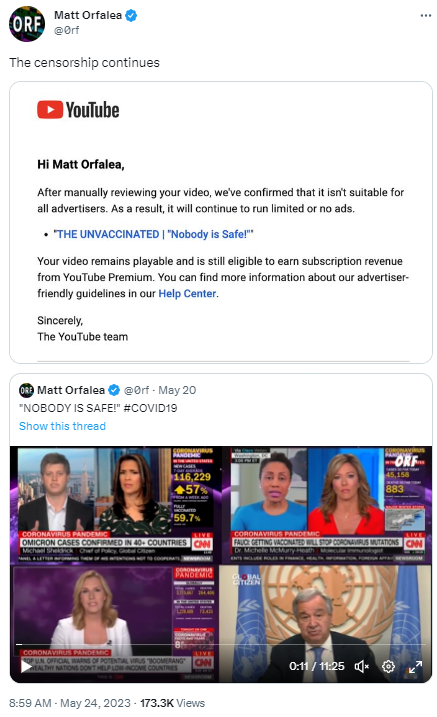The Transgender Religion
In his 2021 book, Woke Racism, John McWhorter made the strong claim that Wokism is a religion. Not like a religion. It was literally a religion. At pages 23-24 he writes:
Something must be understood: I do not mean that these people’s ideology is “like” a religion. I seek no rhetorical snap in the comparison. I mean that it actually is a religion. An anthropologist would see no difference in type between Pentecostalism and this new form of antiracism. Language is always imprecise, and thus we have traditionally restricted the word religion to certain ideologies founded in creation myths, guided by ancient texts, and requiring that one subscribe to certain beliefs beyond the reach of empirical experience. This, however, is an accident, just as it is that we call tomatoes vegetables rather than fruits. If we rolled the tape again, the word religion could easily apply as well to more recently emerged ways of thinking within which there is no explicit requirement to subscribe to unempirical beliefs, even if the school of thought does reveal itself to entail such beliefs upon analysis. One of them is this extremist version of antiracism today. ... Early Christians did not think of themselves as “a religion,” either. They thought of themselves as bearers of truth, in contrast to all other belief systems, whatever they chose to call themselves. In addition, in our times, it will feel unwelcome to the Elect to be deemed a religion, because they do not bill themselves as such and often associate devout religiosity with backwardness. It also implies that they are not thinking for themselves. ... To make sense of it, we must understand them—partly out of compassion and partly in order to keep them from destroying our own lives. This can happen only if we process them not as crazed, but as parishioners.
Abigail Shrier, is the unfairly attacked author of Irreversible Damage (2021), has stated that gender ideology (which many people consider to be part of the Woke movement) should also be considered to be a religion. Not like a religion, but an actual religion. Shrier sets forth her reasons at her Substack, in an article titled: "Little Miss Trouble Why I’m Not Waiting for the Gender ‘Pendulum’ to Swing Back."
Gender Ideology is not a pendulum, and it will not swing back with a little help from inertia. Gender Ideology is a fundamentalist religion—intolerant, demanding strict adherence to doctrine, hell-bent on gathering proselytes. I do not here use the term “religion” metaphorically or lightly. Induction into this religion begins with a baptism: the selection of pronouns and often a new name, greeted with all the celebration (and more) of a conversion. It evangelizes aggressively: through social media influencers, who claim to know a teen’s truest self better than her parents and to love that teen so much more than they ever could. Therapists, teachers, and school counselors play evangelist to numberless kids at American school. There’s no physical evidence that any of us possesses an ethereal gender identity, of course.
Because it is a religion, gender ideology "is not a tide, and it will not turn with the gravitational pull of the moon." According to Shrier, the very occasional sparkles of honesty we have seen in the corporate media were "pawn sacrifices" by the movement. It is her opinion that the ground-swell of Believers filling our sense-making institutions will not give any real ground until forced to do so.
So no, I don’t love the sensation of young people screaming in my face. But there is something I fear more than the furor of hundreds of zealots, blaring horns and banging bass drums: the world they aim to create, where truth finds no foothold and fairness, no purchase.

